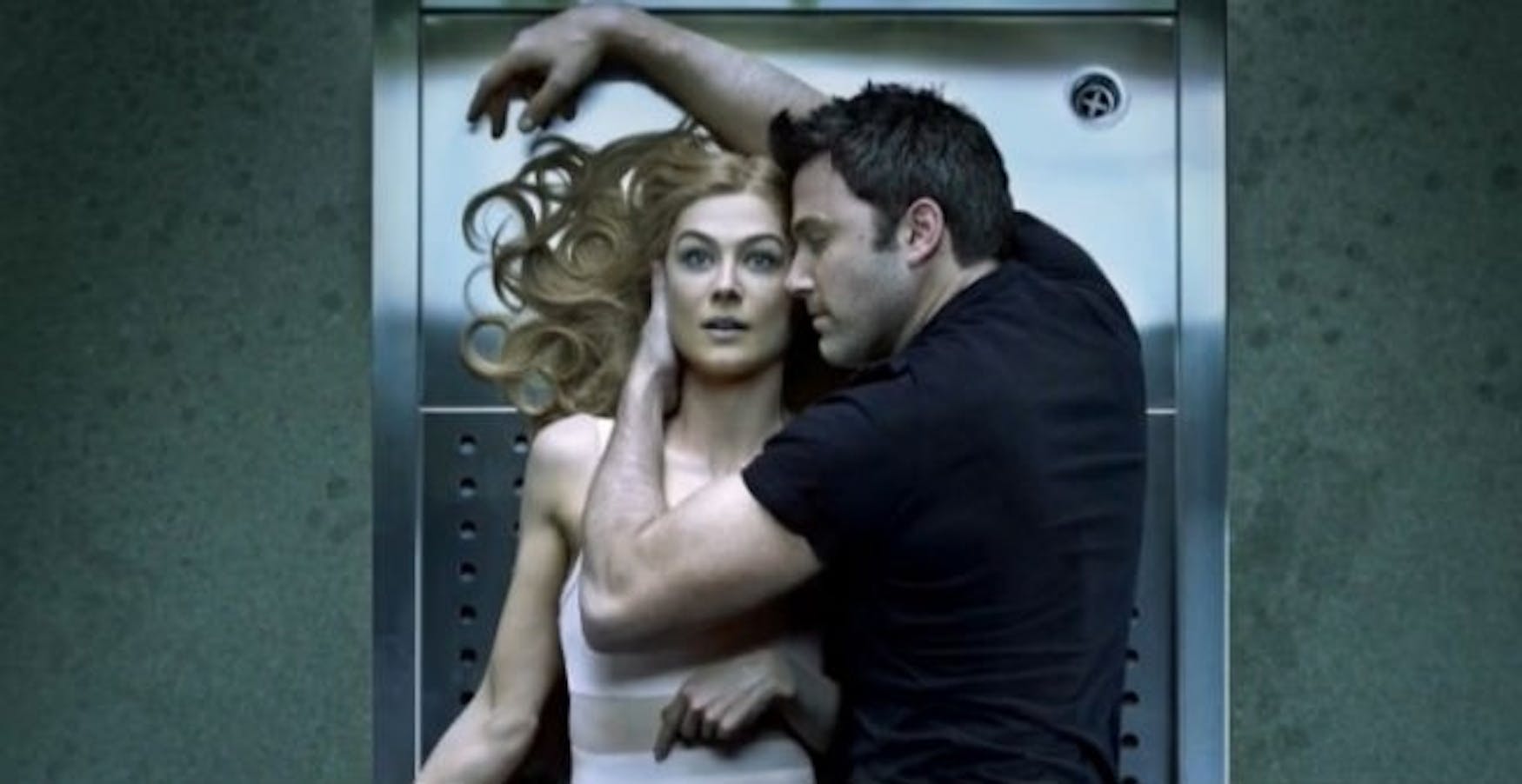‘Gone Girl’ stays true to Flynn’s novel
After Gone Girl’s reign on the literary scene, fans eagerly awaited the release of the movie version of Gillian Flynn’s novel on Oct. 3 and the movie had rather large expectations to fulfill. Starring Ben Affleck and former Bond girl Rosamund Pike, Gone Girl takes a captivating novel and expertly transforms the text into a shocking dramatic thriller. In addition to the thrilling plot, the acting displays a level of expertise and well-thought out casting.
The film begins with Nick Dunne (Affleck) discovering that his wife Amy (Pike) has gone missing on their 5th wedding anniversary; the resulting widespread media frenzy leaves Nick looking suspiciously guilty. Like the novel, the film has an intense and riveting storyline that engages the viewer entirely as we find out what’s happened to Amy and the background information (and secrets) of their marriage. It was refreshing to see a sort of anti-love story receive this level of popularity and acceptance in audiences. Let’s just say you don’t leave the theater with a content smile on your face. Instead, like with the novel, the viewer feels perplexed and in awe of the intricate story Flynn expertly manages to weave together.
Affleck’s slightly disheveled, yet handsome appearance perfectly conveys his character—a husband whose innocence and sincerity is in question. The film uses flashbacks to explain Nick and Amy’s marital history (how they got to this precarious moment) and moves the plot along by switching between Nick or Amy narration and points of view. Affleck’s performance promotes a sense of sympathy for Nick’s situation while also maintaining enough mystery and suspicion to keep the viewer interested.
Pike also delivers a notable performance as the deeply troubled Amy, whose issues are gradually revealed through the film’s progression and flashbacks. As a child, Amy’s psychologist parents wrote a book based on her called Amazing Amy, which is possibly one of the roots of her issues. This plotline raises another theme of how parents can damage their children, regardless of their intentions, and comes up again at the end of the Gone Girl (which I won’t spoil for potential viewers) Pike has come a long way since her days as an action star in Bond girl, as seen in Gone Girl and other more substantial films in recent years.
The dramatic thriller also features Amy’s wealthy ex-boyfriend Desi (Neil Patrick Harris), relentless detective Rhonda Boney (Kim Dickens), Nick’s twin sister Margo (Carrie Coon) and Nick’s attorney Tanner Bolt (Tyler Perry). Of all the supporting actors, Perry has to be my favorite with his excellent delivery of Bolt’s no-nonsense attitude, biting confidence and brilliant strategy as a lawyer. Though you may only know Perry from his comedic work, he nails his performance in Gone Girl and is an excellent foil to the otherwise dark plot.
As for consistency, the movie remains mostly the same as the book (Flynn wrote the screenplay) with only changes such as small character deletions, minor plot adjustments and cut lines. In an interview with the New York Film Society, Flynn stated that she imagined Fincher directing the movie while she was only writing the novel because she thought he would understand “the sense of tension and dread” of Gone Girl. Previous films directed by Fincher also contained dark humor, as Flynn described it, and she wanted Fincher to bring that same aspect to her film as well.
The film premiered at the 52nd New York Film Festival on Sept. 26 to much positive review, with the film society describing it as “a grand panoramic vision of middle America, a uniquely disturbing exploration of the fault lines in a marriage, and a comedy that starts pitch black and only gets blacker, Gone Girl is a great work of popular art by a great artist.” Gone Girl is director David Fincher’s most recent film to be screened at the festival since The Social Network in 2010.
Ultimately, Gone Girl displays the sometimes toxic nature of love and how the media distorts and influences the investigation of crimes. Though the plot may be dark and at times gruesome, Gone Girl is an exploration of marriage and what actually lies behind the façades we put up for the public. The end of the film represents how we live our lives based on the difficult choices we must make. Nick and Amy aren’t perfect, but who really is?



Please note All comments are eligible for publication in The Justice.